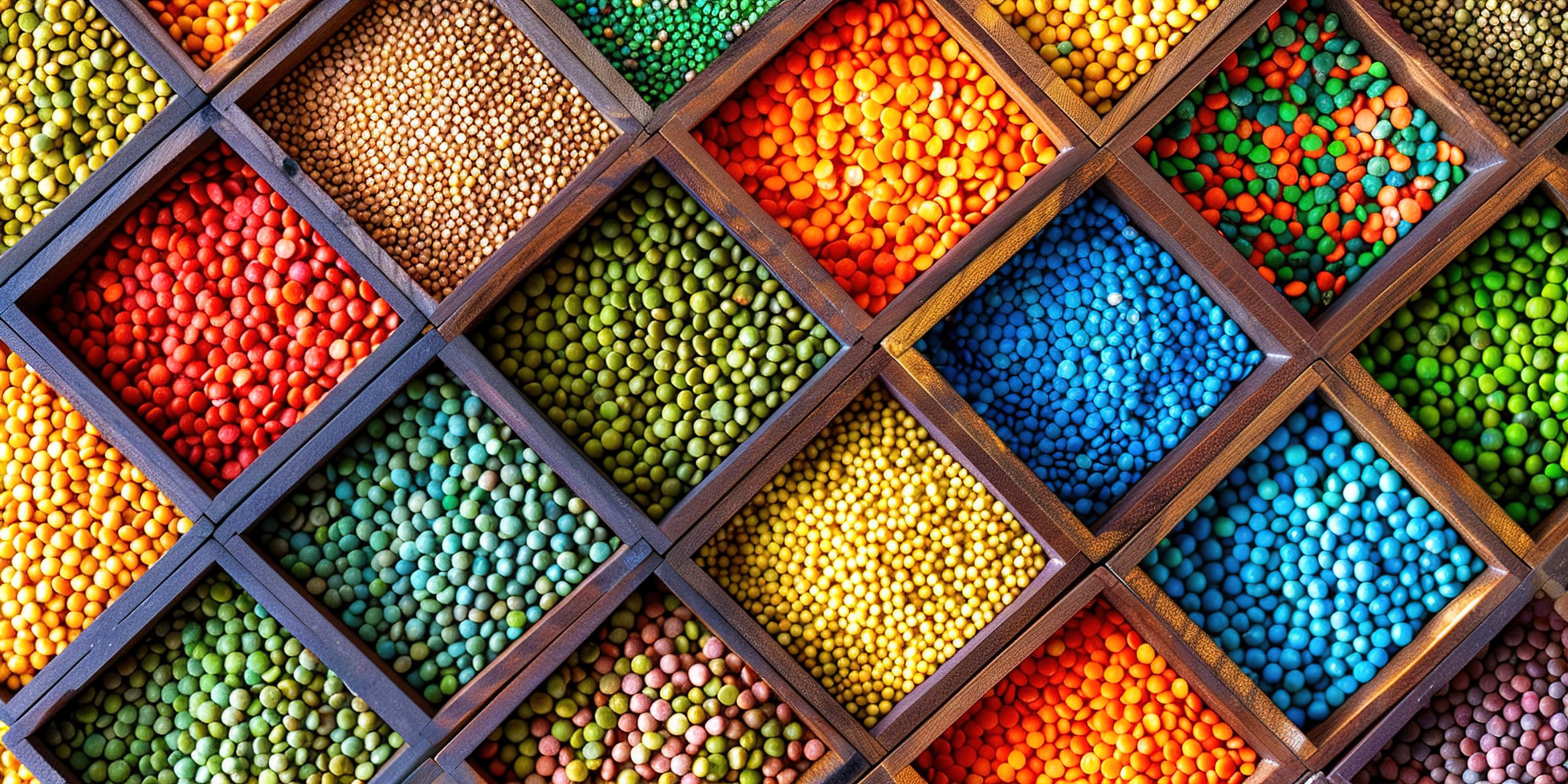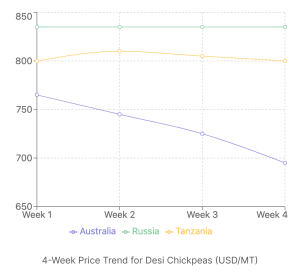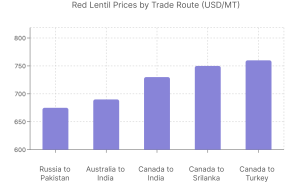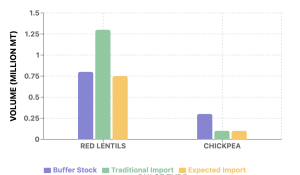Summary:
India's recent launch of the "Bharat Dal" scheme, aimed at controlling domestic pulse prices through subsidised sales, has triggered significant ripples in the global market. The initiative, which involves selling desi chickpeas and red lentils at reduced prices through cooperative networks, has led to notable price adjustments from major global suppliers, particularly Australia, Canada, and Russia.
Key Price Points Under the Scheme:
- Desi chickpeas: ₹58 per kg
- Red lentils: ₹89 per kg
- Green gram (moong dal): ₹107 per kg
Government Buffer Stock Utilization
The initiative will leverage approximately 300,000 tonnes of chickpeas from government buffer stocks. Additionally, the government holds substantial red lentil reserves – approximately 800,000 tonnes – through the National Agricultural and Cooperative Marketing Federation (Nafed). This dual-purpose strategy aims to:
- Control retail price escalation
- Reduce dependency on imports for 2024-25
Impact on Global Markets
Price Adjustments
The announcement has prompted significant price revisions in international markets:
Desi Chickpeas:
1.Australian offers dropped by $70/tonne in one week
2. Current prices:
- India delivery (Nov-Dec): $692-$698/tonne
- Bangladesh delivery (Oct-Nov): $747-$753/tonne
- Pakistan delivery (Oct-Nov): $742-$748/tonne
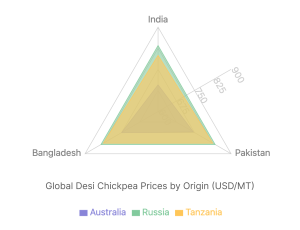
Alternative Origins:
- Russia: $832-$838/tonne (Oct-Nov delivery to Pakistan)
- Tanzania: $797-$803/tonne to India, $825/tonne to Pakistan
Red Lentil Market
Global suppliers have adjusted their positions:
- Russia: Most competitive at $672-$678/tonne (Oct-Nov shipments to Pakistan)
- Australia: $687-$693/tonne (Nov-Dec shipments to India)
- Canada: $727-$733/tonne to India, $747-$753/tonne to Sri Lanka, $757-$763/tonne to Turkey
Import Implications
India's traditional import patterns could see significant changes:
- Annual red lentil imports typically range from 1.2-1.4 million tonnes
- With Nafed's buffer stocks, imports might reduce to around 750,000 tonnes
- Desi chickpea imports of at least 100,000 tonnes expected, with duty-free access until March 31, 2025
Conclusion:
The Bharat Dal initiative represents a significant shift in India's pulse market management strategy. While benefiting domestic consumers through controlled prices, it has triggered a domino effect in global markets, forcing major suppliers to reassess their pricing strategies. This development could reshape traditional trade routes and pricing mechanisms in the global pulse market for the coming season. For traders and market participants, staying attuned to India's policy movements and their international ramifications will be crucial for navigating the evolving pulse trade landscape.
